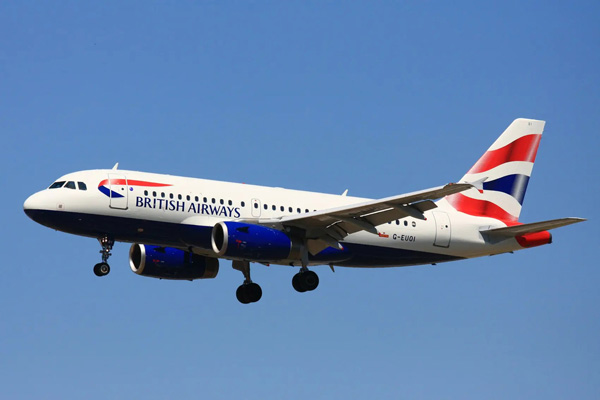Airlines are aiming at sustainable flying beyond SAF

On a recent domestic flight in the United States, an interesting advertisement played on the in-flight entertainment screen that featured popular Sesame Street character Oscar the Grouch.
United Airlines roped in Oscar as its first Chief Trash Officer to create awareness and educate flyers about the relevance of sustainable aviation fuel (SAF).
After all, air travel accounted for over 2 per cent of energy-related CO2 emissions in 2021.One of the fastest-growing preferred modes of transportation, emissions from air travel reached around 720 million tonnes (MT) in 2021.
And with approximately 100,000 flights per day and the demand likely to grow in the coming years, the airline industry believes replacing jet fuel with SAF made from renewable sources is the way forward to reduce Greenhouse Gas (GHG) emissions.
But according to the International Air Transport Association, the current supply of bio-based SAF is severely limited and does not meet even 0.1 per cent of airlines’ needs.
As SAF is still a long way from mainstream adoption, airlines have started looking at the next best alternatives from modernising aircraft fleets to enhancing flight efficiency, deploying technologies for flying to sustainable sourcing, reducing waste onboard and recycling to investing in technology to support SAF.
One such initiative is that of
), which measures the environmental performance of the flight operations by fuel consumption. From this, widely used KPIs are derived, such as the fuel consumption to transport one passenger 100 km (similar to a car’s fuel efficiency) or the CO2 emission by tonne kilometre transported.
Comprehensive environmental and social data is analysed and reported in the Lufthansa Group non-financial declaration and summarised in the LHG Sustainability Factsheet.
Acknowledging that the carbon targets set can only be achieved through a multitude of actions, Swiss Air is closely involved, for instance, in bringing solar fuels to market and has concluded a strategic partnership with Synhelion, which has developed a key technology for manufacturing SAF from renewable energy sources.
Optimising operations
In addition, SWISS is also working towards optimising flight operations. “In cooperation with Google Cloud, a software has been developed to further optimise our flight operations. We maintain intensive communications with industry and research in various specialised areas. It conducts applied research within the framework of the Single European Sky, and advocates for a less fragmented airspace structure, so that aircraft can fly to their destinations without unnecessary detours, at the optimal flight altitudes and with continuous descent flights,” says Melanie Heiniger, Head of Sustainability at SWISS.
Reducing waste & recycling
A special focus lies within the aviation industry on reducing single-use plastic and aluminium items on board, reducing food waste and recycling whatever is possible.
To overcome the roadblocks to sustainable aviation, last year the Airline Catering Association, IATA and International Flight Services Association (IFSA), along with airline industry partners, submitted a joint recommendation to the
urging it to urgently review the risks from International Catering Waste (ICW) and bring changes in the regulations. Airlines in the EU have started adopting the European Union waste hierarchy “Reduce–Reuse–Recycle–Recover–Replace” and increasing circular waste management.
Emirates, meanwhile, has a long-standing environmental policy and strategy that focuses on emissions reduction, responsible consumption, and conservation of wildlife and habitats. Emirates works closely with airline customers, Emirates Flight Catering analyses consumption trends and utilises predictive data to optimise the loading of in-flight catering, reducing waste and fuel burn from carrying excess weight. “Additionally, Emirates Flight Catering utilises AI-enabled food waste management system to enhance reporting and data collection,” says an Emirates spokesperson.
Similarly, to help reduce food wastage, India’s largest domestic carrier IndiGo has reduced offerings of fresh products onboard. While the fresh food is available by pre-booking, it has a large offering of ready-to-eat meals, such as Noodles, Upma, and Poha to cater to flyers who haven’t pre-booked their meals. Likewise, SWISS has already implemented various measures, such as the introduction of the new catering concept “SWISS Saveurs” on continental flights. On the last inbound flight of the day, passengers get the chance to buy fresh food at significantly lower price.
Consumers, too, are becoming increasingly aware and mindful of the environmental impact of their choices. For instance, the vegan options onboard Emirates feature a variety of greens, fruits, and vegetables sourced from several UAE-based suppliers, including fresh locally grown kale and lettuce from Bustanica, the world’s largest hydroponic vertical farm. “As a result, we have seen a 154 per cent increase in vegan meals served onboard between 2021 and 2022, with over 280,000 plant-based meals consumed in the past year,” adds an Emirates spokesperson.
Going a step further, in 2022-23, Emirates recycled over 500,000 kilograms of plastic and glass waste from flights arriving in Dubai. Similarly, most international airlines are following a practice to recycle waste. Dedicated bins are created for used plastic and glass bottles, which the cabin crews sort while disposing of the waste, which is then transported to a recycling plant in the home country of the airline.
Other measures include the recycling of onboard linen items (e.g. blankets) or the introduction of sustainable amenity kits.
Educating consumers
Some are even offering customers the chance to willingly pay for their carbon emissions through green fare or donations for funding environment-friendly initiatives.
Back in 2020, British Airways decided to offset carbon emissions on all its flights within the UK, as part of its commitment to achieving net-zero carbon emissions by 2050. While the airline was offsetting the carbon emissions from their flight by investing in the highest quality, verified carbon reduction projects around the world, customers were encouraged to reduce their impact on the environment by using British Airways’ carbon offsetting tool. The tool helps customers calculate their emissions and choose between carbon offsetting and SAF or carbon removal and SAF.
According to the tool, an economy-class round trip between London Heathrow Airport and Adolfo Suárez Madrid–Barajas Airport can be offset by paying £4.80 (this includes 10 per cent SAF and 90 per cent carbon offsetting). SWISS, together with the Lufthansa Group, also has many similar offerings. “SWISS’s corporate clients are offered various options to make their employees’ and their customers’ air travel more sustainable and help scale up the production of SAF. SWISS is proud to have already concluded cooperation agreements on the use and promotion of SAF with a number of reputed companies and organizations,” adds Heiniger.
Whatever little or big steps the aviation industry and airlines may undertake, this is a longstanding commitment to the environment.
The post Airlines are aiming at sustainable flying beyond SAF appeared first on Travel And Tour World.
from Travel And Tour World https://ift.tt/01KRN5M




0 comments:
Post a Comment